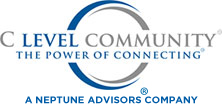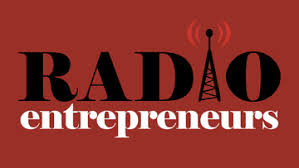Larry was featured as the expert of the week, May 2018 on C Level Community.
Visit C Level Community Website »

Lawrence E. (Larry) Putterman is a certified board director and advisory board member. He is the founder and CEO of Larry Putterman Consulting, an advisory, consulting and CEO coaching firm serving public and private companies (including family businesses) from startups through midsize businesses in the technology, manufacturing, automotive and technology service industries. He provides guidance in effective branding, acquisition and growth strategies that directly impact corporate profits and shareholder value.
Larry is a tech-savvy certified board director, an entrepreneurial CEO, and CEO coach. Growing up in a family business, Larry is known for his expertise in diagnosing and improving the efficiency of existing businesses, and in developing and implementing strategic growth plans for companies in competitive markets. He has significant experience in family businesses, technology services, cyber security, E-Commerce and, foreign and domestic manufacturing industries. He shares his expertise and experiences in his leadership blog: https://www.larryputterman.com/.
Larry was CEO, chairman and board director of SafeData, LLC, a data backup and recovery solutions company serving corporate clients that he sold to Data Storage Corporation (OTCBB: DTST) in 2010. Subsequently, he has served on Data Storage Corporation’s board of advisors and directors and was an active member of its Mergers and Acquisitions Committee.
Prior to SafeData, Larry was founder and president of both American Sports Company and Pan American Sports Company in the Dominican Republic, for more than 20 years. These two companies became the largest independent contract manufacturers of men’s and women’s shoes and components in the Dominican Republic with 1,500 manufacturing employees. Clients included well-known brands like Timberland, Sperry Top-Sider, Sebago, Polo, LL Bean, Nike and New Balance.
Larry also honed his management skills in family business as the chief operating officer of Milton Shoe Company in Milton, Pa. and Cinderella Shoe Company in San Lorenzo, Puerto Rico. These companies made over 15,000 pairs of shoes per day that were sold through major retailers.
His extensive current and previous board experience include IPC Global Solutions, CDC Software LLC, Audio Ops LLC, Data Storage Corporation, Northern Central Bank, SafeData LLC, American Sports Company, Pan American Sports Company, Milton Shoe Company, Cinderella Shoe Company, and Susquehanna Investment Network. Larry is a member and holds a Masters Professional Director Certification from The American College of Corporate Directors.
Larry’s committee experience includes mergers and acquisitions, audit, nominating, governance, compensation, and finance.
May 6th, 2018
22 Comments
Napavalley May 7, 2018 at 9:14 am
Good morning. Can you give examples of what issues CEOS have hired you to address as a CEO coach?
lputterman May 7, 2018 at 2:20 pm
Hi Nappavalley, thanks for asking the first question.
I will give two examples of the types of issues. CEOs have hired me to solve:
The first issue was a company where the CEO did not believe he had good relations with his management staff. He wanted to find out why and how he could improve the relationships. The CEO knew that by improving the relationships more would get done with fewer mistakes and sales would grow. Happy employees make happy customers.
When the CEO and I had our first meeting, I asked why he thought he had a problem. His answer was when he had a meeting, and he asked if there were any questions no one raised their hand, he thought the employees were not spending enough time at work and mistakes were being made.
The problem was the CEO was not approachable. I ended up doing a 360 review of the CEO. The team was happy to confide in me because they knew there was a problem. The CEO started making a conscious effort to listen and complement team members. If he disagreed with a team member, he did it in private. Weekly meetings were implemented with each team member to discuss their projects and any concerns. The CEO started listening, and the company culture improved and increased sales and productivity followed.
The second was a startup software company. The CEO was an engineer and needed help with questions on processes and policies. He was dealing with companies much larger than his company and needed a sounding board.
One example was the company had recurring income model, but could not get their customers to pay on the first day of the month. I helped him set up a system where the customers paid a deposit for implementation, and he started billing 30 days in advance. For example, if the invoice was due on June 1, the invoice was created on May 1 with 30-day terms. This new system solved his cash flow problems.
Enclosed is part of a recommendation the CEO wrote which shows how he felt I helped him:
“Larry provided actionable advice on Business Strategy, Business Operations, and Marketing. The advice and suggestions provided led directly to improvements in our accounts receivable operations and were incorporated into our customer outreach strategy. Larry is approachable, has always made himself readily available, and brings years of business experience to every conversation.”
Brighton2222 May 7, 2018 at 9:23 am
Would a board typically retain you to coach a CEO? Or is the assignment typically initiated by the CEO? In the latter circumstance, how does an executive justify your cost (i.e. are they concerned the board would think that they should know what they are doing in the first place)?
lputterman May 7, 2018 at 3:38 pm
Hi Brighton2222, That’s a good question.
I am assuming by your question that the company has a board. A board typically approves the hiring of a CEO coach because they want a CEO to get acclimated and performing at full speed as soon as possible. In this case, coaching is usually part of the CEO package. Every CEO needs a sounding board before they make specific decisions. These discussions might be about personnel or new policies etc.
A CEO if not offered a coach when hired would typically get it pre-approved as part of the negotiation process. Some companies have coaching as part of the onboarding process for all C-level executives. HR usually has a list of approved coaches. If a CEO would like to use a different coach, he would have to justify why.
Most boards today would not see a CEO wanting to hire a coach as a sign of weakness. Of course, timing is everything. I have seen more situations where the board wants the CEO to have a coach, but the CEO pushes back with the excuse that they do not have the time.
wooster May 8, 2018 at 7:50 am
Larry, what are the 3 big misses a board for a middle market company makes? If only they had addressed.
lputterman May 8, 2018 at 9:38 am
Hi Wooster, Great question!
The first mistake middle market companies make is by not appointing Independent board directors. These companies only see the world through the insider’s eyes. Independent directors bring experience from other industries. All industries solve the same problems but in different ways. Their fresh eyes and ideas can make the company more competitive and successful.
The second mistake middle market companies make is by not spending enough time discussing who their customer is. Are they solving their customer’s problems? Are there other items their customer could be using? Are there other markets they could be penetrating?
The third mistake middle market companies make is not figuring out who their competition is. What are they doing differently? What is their market share compared to ours? How are they pricing their product? How do we convert their customers to ours?
terra May 8, 2018 at 8:01 am
Curious how you transitioned from COO of a shoe company to focusing on tech? Why- what led you to this? Thank you
lputterman May 8, 2018 at 10:27 am
Hi Terra, Thanks for asking this question.
I grew up in the family shoe manufacturing business which was very labor intensive. We had very little technology, and you needed to know a lot about many things. I learned how to do everything manually, and we adapted to technology as it became available. The things that we take for granted such as electronic calculators, fax machines, Federal Express, computers, Excel spreadsheets were not available. I ended up knowing how to do things the manual way and then with electronics.
I started my entrepreneurial business in the Dominican Republic. We made shoe uppers for major manufacturers in the USA. We became the largest independent manufacturer of uppers in the DR. After 20 years; I had the unfortunate experience of enduring a hurricane and a fire. I decided, it was time to move on to something new.
I worked as a consultant for a few years and decided that being an entrepreneur was in my blood and started looking for another business. I hired an M&A firm to help me find the right company. They gave me a list of sic codes and asked what would you like to buy? I ended up looking at over 60 businesses. I bought a backup, recovery, and cloud computing company. The owner became my partner, and we ended up selling to a public company. I was in the right place at the right time.
Tiger111 May 9, 2018 at 9:32 am
Larry, what guidance do you provide in “effective branding”? What are the key issues you confront when it comes to branding? Are you referring to the B2B or B2C area?
lputterman May 9, 2018 at 2:08 pm
Hi Tiger111, Always an interesting question.
I will answer the last question first. We provide guidance on both B2B and B2C areas. The two are quite different in their marketing avenues, but in the understanding and the effectiveness of the brands the questions and the principals are the same.
We work with our clients to understand what they are doing, what are they looking to achieve, and how effective they are in achieving those goals. We then start asking questions like these:
Who are their customers?
What customers are they looking to add?
What is their market share?
Who is their competition and what share of the market do they own?
One question leads to another and another. We want to get to a point where the client and we fully understand what the problems are. We then go to work to solve and help the client implement solutions.
Wachusett44 May 9, 2018 at 10:43 am
I would like to hear about your sale to a public company? Was it a competitive process? Any regrets? Anything you would have done differently? Thank you
lputterman May 9, 2018 at 3:51 pm
Hi Wachusett44, Always glad to share my experiences.
I had two experiences that have made me be a better board director, business leader, and advisor. The first was being on a bank board and the second was selling our business to a public company.
Selling a business to a public company is like being in a room with an 800-pound gorilla. They have more resources, more lawyers, and more staff than you have.
I had put the general partner of the M&A firm, who found the company, on our board, so we were ready to go when we received the offer. We set up a secure data room for all documents. The company was a synergistic buyer. It necessitated the coding of sensitive information such as customers etc. The more information we provided, the more they wanted. They threatened to walk away several times, and we thought about ending the negotiations many times. You need a good M&A firm to get you through the low periods. The process seemed endless, but we successfully got the deal done. A lesson learned is to hire a great team of advisors. It can be expensive but well worth it.
After going through the process, I would have insisted that our M&A firm find other buyers. The best situation for the seller is to have a bidding war. Do your due diligence on the buying company. Get a deal where most or all of the cash is upfront. You have to be happy with the cash you get when the deal closes. Any contingencies based on sales and customer retention may sound good initially, but may not happen. If you take stock, the stock may go down before you can sell it.
The most important advice I can give is: Selling your company is very stressful, and you should make sure you understand and agree with everything in the final agreement before you sign.
StoweVT May 10, 2018 at 10:27 am
Larry- you mention your cyber expertise. In your opinion, what do middle market companies miss when it comes to cyber? Any red flags to avoid?
lputterman May 10, 2018 at 1:06 pm
Hi StoweVT, An excellent question for today’s environment.
As a director with cybersecurity experience, I always advise a company that no matter what they do the company will be hacked. A company must decide the data that they must protect and the data that they want to protect. The cost would be prohibitive to protect all the company’s data. Depending on the size of the company, each company will take a different approach. The common denominator is: All companies must have a cybersecurity policy and all employees from the receptionist to the C-Suite executive team must be trained in this policy.
Enclosed is a list of facts and questions for middle market companies to ponder:
All companies will eventually be hacked.
Do you know what information you need or want to protect? (Companies cannot afford to protect all their data)
Do you have a plan and policy?
Are all employees trained and continue to be trained in this policy?
Do you have the proper consultants? (PR, Lawyer, technical personnel in case of attacks)
Does the company practice what to do if hacked? (like a fire drill)
Does the company have proper backup procedures? How long would it take to get back up and running after being hacked?
Does the company try to restore it’s data at least once a year? (Can be done through simulation)
Gartner says: 60% of companies that lose their data are not in business after five years.
Paxton May 10, 2018 at 10:31 am
Not sure what it means to be a “certified ” board member. Please explain. Thank you
lputterman May 10, 2018 at 1:41 pm
Hi Paxton, Thanks for asking this question.
There are several premier board certification programs. I received my certification from The American College of Corporate Directors. ACCD is a networking, educational and credentialing organization for directors of publicly held companies. Its mission is to provide members with the highest standard of instruction, theory, and practice surrounding the important, complex, and timely issues facing public and private companies today.
I attend webinars and forums (3-day training sessions) on a continuing basis to keep up with the latest developments in corporate governance and issues facing public and private directors. I hold a Masters Professional Director Certification.
wingsb May 11, 2018 at 8:31 am
Larry, how does your background in family business influence the advice you provide today?
lputterman May 11, 2018 at 5:27 pm
Hi wingsb, That’s a fascinating question.
My father was an excellent mentor; it was a great experience and learning process. My father is now 94 and to have been able to spend those years with him that where special times for him and me. Those times were the basis for the advice I provide today. I can guide family, private and public businesses. The family business gave me the opportunity to have more significant responsibility and decision making power at an early age. When I meet with families, I can provide real-life advice. I find myself going back to problems I solved in the family business to help companies resolve the same issues today.
terra May 11, 2018 at 8:36 am
You made a comment about understanding what is in your final agreement in selling your company. Not sure what you mean by that- please explain. Thank you
lputterman May 11, 2018 at 5:50 pm
Hi terra, Happy to explain.
Negotiating and selling a company is a very stressful event. Most businesses are not sold where a check is written, and everyone goes their separate ways. A buyer wants to pay less, and the seller wants more. There are contingencies to resolve these differences. An example might be that the sales from existing customers in the next 12 months must be at least 90% of sales at the time of closing to get an additional dollar amount. The list can go on and on. The sellers need to understand and realize that they may or may not receive any additional funds based on the final agreement.
Gator82 May 11, 2018 at 8:40 am
Since you are a “shoe dog”, did you read the Phil Knight book? Are you surprised by the recent revelations and departures at Nike?
lputterman May 11, 2018 at 6:12 pm
Hi Gator82, Phil built a great business.
No, but it is on my reading list. I was not surprised when the news came out. Nike is a large company, and there are individuals in power that follow the rules and others that do not. I believe that the board and Mark Parker made the proper decision on the individuals who departed Nike. When it comes to the board or management attention, there should be no tolerance for harassment and discrimination.










